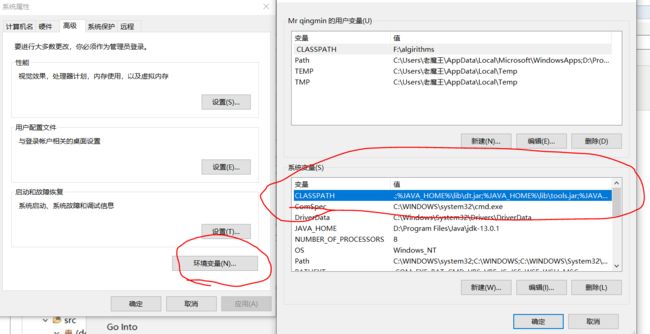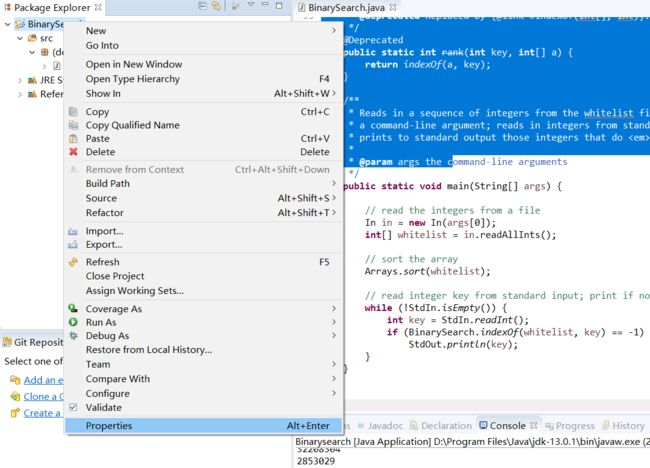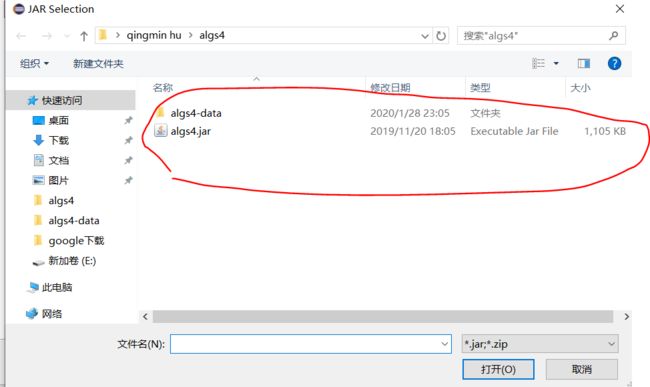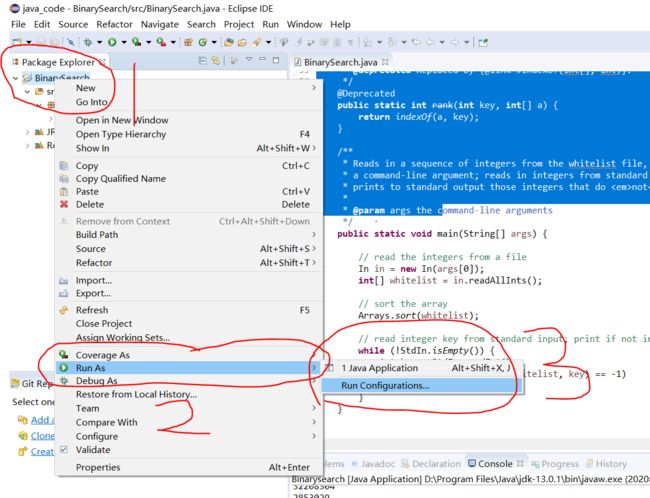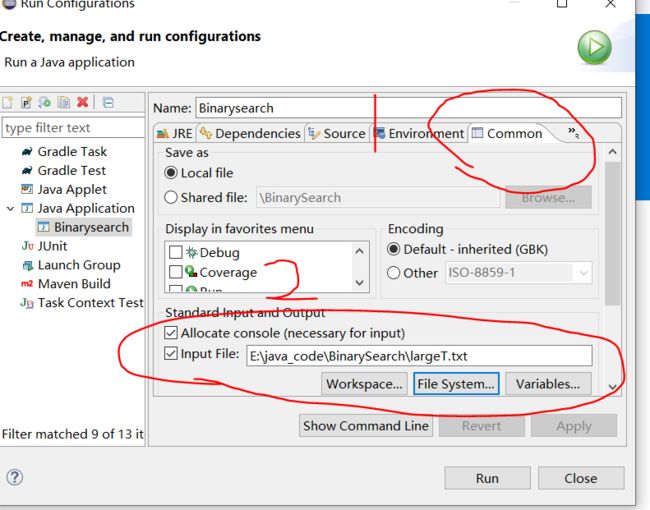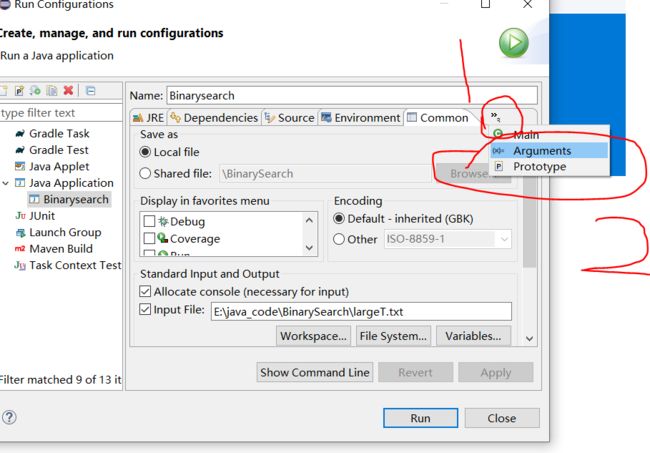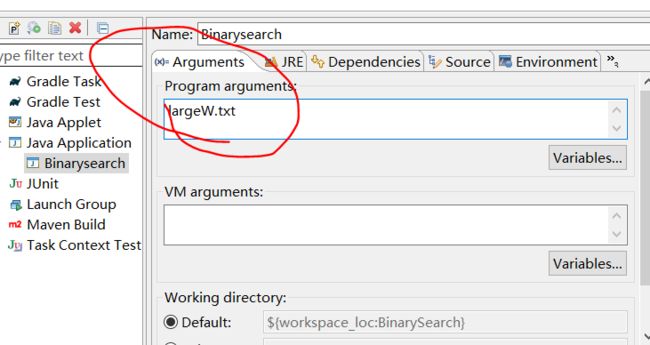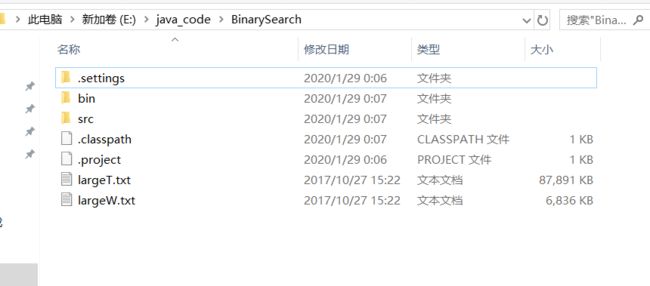- CSS特效花样鼠标悬停效果
DTcode7
HTML网站开发#前端基础入门三大核心之CSSHTMLCSSwebcss3网页开发
CSS特效花样鼠标悬停效果鼠标悬停效果概述基本概念与作用示例一:基本的颜色变化代码解释示例二:渐变背景色代码解释示例三:放大与阴影效果代码解释示例四:文字提示代码解释示例五:旋转和翻转代码解释实际工作中的使用技巧在现代Web开发中,良好的用户体验往往意味着不仅仅要有一个功能完备的应用程序,还需要具备吸引人的视觉效果。鼠标悬停效果便是提升网站交互性和吸引力的一种常见方式。本文将探讨如何运用CSS来实
- GStreamer —— 3.1、Qt+GStreamer制作多功能播放器,支持本地mp4文件、rtsp流、usb摄像头等(可跨平台,附源码)
信必诺
GStreamerQtGStreamerQt
运行效果 介绍 本项目基于Qt和GStreamer开发了一款多功能播放器,
- GStreamer —— 3.2、Qt+GStreamer+OpenCV制作图像处理播放器(对每帧图像处理),支持本地mp4文件、rtsp流、usb摄像头等(可跨平台,附源码)
信必诺
GStreamerQtGStreamerQt
运行效果 介绍 本项目是一个结合了Qt、GStreamer和OpenCV的跨平台图像处理播放器项目。该
- Android 12.0 WiFi连接流程分析之IP地址分配流程
安卓兼职framework应用工程师
android12.0Rom开发疑难问题分析androidtcp/ipwifi连接ip地址分配ip
1.前言在12.0的系统rom定制化开发中,对于wifi的定制功能也是比较多的,在关于wifi连接流程模块的分析,了解整个wifi连接流程也是非常重要的,接下来看下wifi的连接流程分析下相关功能实现2.WiFi连接流程分析之IP地址分配流程的核心类frameworks/opt/net/wifi/service/java/com/android/server/wifi/ClientModeImpl
- 简单工厂模式:思考与解读
智想天开
理解设计模式#初级简单工厂模式
原文地址:简单工厂模式:思考与解读更多内容请关注:深入思考与解读设计模式引言你是否遇到过这样的问题:在一个系统中,你需要创建不同类型的对象,而这些对象之间有很多相似之处,唯一的区别可能是某些细节或行为?如果每次都手动创建对象,会导致代码重复,并且难以扩展。如何才能有效地管理这些对象的创建?你是否想过,是否有一种机制可以在不暴露对象创建过程的情况下,提供统一的接口来生成对象?这就是简单工厂模式能够帮
- C语言中的结构体
NaZiMeKiY
C/C++c语言算法开发语言
一.结构体1.结构体的概念:结构体可以理解为自定义的数据类型,它是由一批数据组合而成的结构型数据2.结构体格式:struct结构体名字{成员1;成员2;...成员n;};案例:#include#includestructstudent{charname[100];intage;chargender;};intmain(){structstudents1;strcpy(s1.name,"zhangs
- CSS实现当鼠标停留在一个元素上时,使得两个元素的样式发生改变
Lipn
前端CSScss前端
这里我们实现一个鼠标停留在input框时,使得input和button两个元素的边框都变颜色首先该元素结构如下,HTML是这样的第一步:当鼠标悬停在input上时,使用css伪类选择器,代码如下:这里空格是后代选择器,:hover是伪类选择器.testinput:hover{}第二步:当鼠标悬停在input上时,选中button元素:从html可以看到input和button属于兄弟关系,相邻兄弟
- 解决Ubuntu命令“sudo apt-get install”——“ E: 无法定位软件包”问题
Joker 007
服务器ubuntulinux服务器
1.添加镜像源(本文是清华源)。运行代码:sudovim/etc/apt/sources.list添加如下内容:debhttps://mirrors.tuna.tsinghua.edu.cn/ubuntu/bionicmainrestricteduniversemultiverse#deb-srchttps://mirrors.tuna.tsinghua.edu.cn/ubuntu/bionicm
- 流数据(Streaming Data)处理
人间无人事
javascript
在看代码之前,我们应当首先知道流数据与webSocket之间的区别(两者不能同一而论),因为存在区别所以在读取数据时使用相对较大的差距下面我将概述我对两者区别的一个总结(若有不对,请斧正)流数据(StreamingData)和WebSocket是两种不同的技术,但它们在实时数据传输方面有一些相似之处。以下是它们的区别和相同点:相同点1.实时性-两者都支持实时数据传输,适合需要低延迟的场景,如聊天应
- Maven简介
z迦在线
mavenjava
Maven简介Maven是Apache软件基金会的一个开源项目,是一个优秀的项目构建工具,它用来帮助开发者管理项目中的jar,以及jar之间的依赖关系、完成项目的编译(.java--->.class)、测试、打包(源代码--->.jar文件)和发布等工作。Maven是如何管理项目中的jar文件的?Maven简化了Java项目中的JAR文件管理,主要通过以下几个关键点:POM文件:Maven使用po
- 将MySQL数据同步到Elasticsearch作为全文检索数据的实战指南
格子先生Lab
全文检索mysqlelasticsearch
在现代应用中,全文检索是一个非常重要的功能,尤其是在处理大量数据时。Elasticsearch是一个强大的分布式搜索引擎,能够快速地进行全文检索、分析和可视化。而MySQL作为传统的关系型数据库,虽然能够处理结构化数据,但在全文检索方面的性能不如Elasticsearch。因此,将MySQL中的数据同步到Elasticsearch中,可以充分发挥两者的优势。本文将介绍如何将MySQL中的数据同步到
- CSS实现当鼠标悬停在一个元素上时,另一个元素的样式发生变化的效果
Wiktok
css前端
CSS可以实现当鼠标悬停在一个元素上时,另一个元素的样式发生变化的效果。可以通过以下几种方法来实现:1.使用兄弟选择器(AdjacentSiblingSelector)如果两个元素是兄弟关系(即它们有相同的父元素),可以使用+或~选择器来实现。示例代码:.element1:hover+.element2{background-color:yellow;}悬停在我上面另一个元素在这个例子中,当鼠标悬
- 设计模式-抽象工厂模式(Abstract Factory)
树懒_Zz
设计模式抽象工厂模式设计模式
抽象工厂模式是一种创建型设计模式,它能创建一系列相关的对象,而无需指定其具体类。譬如你正在开发一款家具组装系统。代码中包括一些产品:椅子(chair),沙发(sofa)和咖啡桌(CoffeeTable)然后基于这些产品形成一些列组合套餐装饰风艺术(ArtDeco)、维多利亚(Victorian)和现代(Mdern)。你需要设法单独生成每件家具对象,这样才能确保其风格一致。如果顾客收到的家具风格不一
- Python基础知识点总结
豆芽819
tippython开发语言
1Python简介Python特点:解释型语言:无需编译,逐行执行。动态类型:变量类型在运行时确定。简洁易读:语法接近自然语言,代码简洁。跨平台支持:Windows/Linux/macOS均可运行。应用领域:Web开发、数据分析、人工智能、自动化脚本等。开发环境:推荐使用IDLE、PyCharm、VSCode或JupyterNotebook。2Python数值运算基本运算符:算术:+,-,*,/,
- Pytorch中的torch.utils.data.Dataset 类
小白的高手之路
深度学习(DL)Pytorch实战深度学习pythonpytorch
1、使用方法fromtorch.utils.dataimportDataset2、torch.utils.data.Dataset类的定义classDataset(Generic[_T_co]):r"""Anabstractclassrepresentinga:class:`Dataset`.Alldatasetsthatrepresentamapfromkeystodatasamplesshou
- 实验7-2-3 求矩阵的局部极大值
范德蒙蒙
矩阵算法数据结构c语言
#includeintmain(){intm,n;scanf("%d%d",&m,&n);inta[m+1][n+1];//编号从1开始for(inti=1;ia[i-1][j]&&a[i][j]>a[i+1][j]&&a[i][j]>a[i][j-1]&&a[i][j]>a[i][j+1]){printf("%d%d%d\n",a[i][j],i,j);you=1;}}}if(you==0){p
- Python与区块链隐私保护技术:如何在去中心化世界中保障数据安全
Echo_Wish
Python!实战!区块链python去中心化
Python与区块链隐私保护技术:如何在去中心化世界中保障数据安全在区块链世界里,透明性和不可篡改性是两大核心优势,但这也带来了一个悖论——如何在公开账本的同时保障用户隐私?如果你的交易记录对所有人可见,如何防止敏感信息泄露?Python作为区块链开发中最受欢迎的语言之一,提供了强大的工具和库来增强隐私保护。本文将深入探讨区块链的隐私保护技术,并结合Python代码示例,带你了解如何在Web3时代
- HDFS相关的面试题
努力的搬砖人.
java面试hdfs
以下是150道HDFS相关的面试题,涵盖了HDFS的基本概念、架构、操作、数据存储、高可用性、权限管理、性能优化、容错机制、与MapReduce的结合、安全性、数据压缩、监控与管理、与YARN的关系、数据一致性、数据备份与恢复等方面,希望对你有所帮助。HDFS基本概念1.HDFS是什么?它的设计目标是什么?•HDFS是Hadoop分布式文件系统,设计目标是实现对大规模数据的高吞吐量访问,适用于一次
- 服务器虚拟化相关的面试题
努力的搬砖人.
java面试服务器其他
以下是服务器虚拟化相关的面试题,涵盖了服务器虚拟化的基础概念、技术原理、应用场景、性能优化、容错与高可用性、网络与存储、管理与监控、安全与备份、与其他技术的结合等方面,希望对你有所帮助。服务器虚拟化基础概念1.什么是服务器虚拟化?它的主要目的是什么?•服务器虚拟化是指通过虚拟化技术将一台物理服务器虚拟成多台虚拟机,每台虚拟机可以独立运行操作系统和应用程序。其主要目的是提高服务器的资源利用率,降低硬
- Flink相关面试题
努力的搬砖人.
面试java后端flink
以下是150道ApacheFlink面试题及其详细回答,涵盖了Flink的基础知识、核心架构、API使用、性能调优等多个方面,每道题目都尽量详细且简单易懂:Flink基础概念类1.什么是ApacheFlink?ApacheFlink是一个开源的流处理和批处理框架,能够实现快速、可靠、可扩展的大数据处理。它既可以处理无界的数据流,也可以处理有界的数据批,提供了低延迟和高吞吐量的实时数据处理能力。Fl
- 如何对关键字段进行脱敏(一)在使用Mybatis-plus执行查询
张瀚元782738120
mybatisjava
为了在读取用户表中的mobile字段时进行脱敏处理,并实现一个通用的方法以便将来对其他字段例如:邮箱、身份证、姓名等进行脱敏处理,可以采用以下步骤:1.添加依赖首先,在pom.xml文件中添加必要的依赖,包括SpringBoot、MyBatis-Plus和Hutool工具库:org.springframework.bootspring-boot-starter-webcom.baomidoumyb
- FastAPI Web框架 [1.9]
carefree798
FastAPIpython
表单数据fromfastapiimportFastAPI,Form#导入Form#表单数据#接收的不是JSON,而是表单字段时,要使用Formapp=FastAPI()@app.post("/login/")asyncdeflogin(username:str=Form(...),password:str=Form(...)#定义Form参数):return{"username":username
- 基于Azure云平台构建实时数据仓库
weixin_30777913
云计算azure开发语言sparkpython
设计Azure云架构方案实现AzureDeltaLake和AzureDatabricks,结合电商网站的流数据,构建实时数据仓库,支持T+0报表(如电商订单分析),具以及具体实现的详细步骤和关键PySpark代码。一、架构设计[电商网站]→[AzureEventHubs]→[AzureDatabricksStreaming]↓[AzureDeltaLake]←→[DatabricksSQLAnal
- shell 脚本搭建apache
好多知识都想学
apache
#!/bin/bash#SetApacheversiontoinstall##author:yuan#检查外网连接echo"检查外网连接..."pingwww.baidu.com-c3>/dev/null2>&1if[$?-eq0];then echo"外网通讯良好!"else echo"网络连接失败,请检查你的网络设置!" exit1fisleep5#检查并安装APR库echo"检查并安装
- 人脸识别的一些代码
饿了就干饭
CV相关人脸识别
1、cv2入门函数imread及其相关操作2、(详解)opencv里的cv2.resize改变图片大小Python3、机器学习之人脸识别face_recognition使用4、使用face_recognition进行人脸校准5、简单的人脸识别通用流程示意图(这个看着写的挺好的)6、face_recognition和图像处理中left、top、right、bottom解释7、使用pillow库对图片
- Nginx 在 Ubuntu 上的安装与配置指南
一回生二回熟
Ubuntunginxubuntu运维
Nginx在Ubuntu上的安装与配置指南Ubuntu的软件管理工具已经提供了Nginx的安装包,如果不需要借助Docker等其他容器化工具对Nginx进行管理,可以直接通过Ubuntu自带的软件管理工具轻松安装Nginx。本指南将详细介绍Nginx的安装过程、安装后的检查方法、服务的管理以及基本的配置步骤,帮助你快速上手并正确使用Nginx。1.安装Nginx安装Nginx非常简单,只需使用以下
- Ubuntu检查并启用 Nginx 的stream模块或重新安装支持stream模块的Nginx
一回生二回熟
Ubuntuubuntunginx
stream模块允许Nginx处理TCP和UDP流量,常用于负载均衡和端口转发等场景。本文将详细介绍如何检查Nginx是否支持stream模块,以及在需要时如何启用该模块。1.检查Nginx是否支持stream模块首先,需要确认当前安装的Nginx是否已经编译并启用了stream模块。可以通过以下命令查看Nginx的编译参数:nginx-V2>&1|grep--'--with-stream'•有输
- 在 Linux 中,lsblk 命令输出内容解释
冷冷清清中的风风火火
linux运维服务器
在Linux中,lsblk命令用于以树状结构列出所有块设备(如磁盘、分区、LVM逻辑卷等)的信息。以下是lsblk输出的详细解释和示例:1.示例输出NAMEMAJ:MINRMSIZEROTYPEMOUNTPOINTSsda8:00238.5G0disk├─sda18:10512M0part/boot/efi├─sda28:201G0part/boot└─sda38:30237G0part└─vg-
- 在 Linux 系统中,区分**磁盘(物理/虚拟存储设备)和分区(磁盘的逻辑划分)
冷冷清清中的风风火火
linux运维服务器
在Linux系统中,区分**磁盘(物理/虚拟存储设备)和分区(磁盘的逻辑划分)**是管理存储的基础。以下是详细的区分方法和操作示例:一、通过设备命名规则区分Linux中磁盘和分区的命名遵循特定规则:类型命名格式示例说明磁盘/dev/sdX/dev/sdasd表示SCSI/SATA磁盘,X为字母(a,b,c…)。/dev/nvmeXnY/dev/nvme0n1nvme表示NVMe磁盘,X为控制器编号
- Python从入门到精通的系统性学习路径
niuTaylor
编程区python学习开发语言
Python从入门到精通的系统性学习路径一、基础语法快速突破1.变量与基础操作#动态类型演示a=10#整型a=3.14#浮点型a="Python"#字符串a=[1,2,3]#列表#格式化输出进阶name="Alice"print(f"{name:*^20}")#居中填充输出:******Alice*******2.运算符优先级实战#常见运算符优先级练习result=5+3*2**2//(4%3)p
- [星球大战]阿纳金的背叛
comsci
本来杰迪圣殿的长老是不同意让阿纳金接受训练的.........
但是由于政治原因,长老会妥协了...这给邪恶的力量带来了机会
所以......现代的地球联邦接受了这个教训...绝对不让某些年轻人进入学院
- 看懂它,你就可以任性的玩耍了!
aijuans
JavaScript
javascript作为前端开发的标配技能,如果不掌握好它的三大特点:1.原型 2.作用域 3. 闭包 ,又怎么可以说你学好了这门语言呢?如果标配的技能都没有撑握好,怎么可以任性的玩耍呢?怎么验证自己学好了以上三个基本点呢,我找到一段不错的代码,稍加改动,如果能够读懂它,那么你就可以任性了。
function jClass(b
- Java常用工具包 Jodd
Kai_Ge
javajodd
Jodd 是一个开源的 Java 工具集, 包含一些实用的工具类和小型框架。简单,却很强大! 写道 Jodd = Tools + IoC + MVC + DB + AOP + TX + JSON + HTML < 1.5 Mb
Jodd 被分成众多模块,按需选择,其中
工具类模块有:
jodd-core &nb
- SpringMvc下载
120153216
springMVC
@RequestMapping(value = WebUrlConstant.DOWNLOAD)
public void download(HttpServletRequest request,HttpServletResponse response,String fileName) {
OutputStream os = null;
InputStream is = null;
- Python 标准异常总结
2002wmj
python
Python标准异常总结
AssertionError 断言语句(assert)失败 AttributeError 尝试访问未知的对象属性 EOFError 用户输入文件末尾标志EOF(Ctrl+d) FloatingPointError 浮点计算错误 GeneratorExit generator.close()方法被调用的时候 ImportError 导入模块失
- SQL函数返回临时表结构的数据用于查询
357029540
SQL Server
这两天在做一个查询的SQL,这个SQL的一个条件是通过游标实现另外两张表查询出一个多条数据,这些数据都是INT类型,然后用IN条件进行查询,并且查询这两张表需要通过外部传入参数才能查询出所需数据,于是想到了用SQL函数返回值,并且也这样做了,由于是返回多条数据,所以把查询出来的INT类型值都拼接为了字符串,这时就遇到问题了,在查询SQL中因为条件是INT值,SQL函数的CAST和CONVERST都
- java 时间格式化 | 比较大小| 时区 个人笔记
7454103
javaeclipsetomcatcMyEclipse
个人总结! 不当之处多多包含!
引用 1.0 如何设置 tomcat 的时区:
位置:(catalina.bat---JAVA_OPTS 下面加上)
set JAVA_OPT
- 时间获取Clander的用法
adminjun
Clander时间
/**
* 得到几天前的时间
* @param d
* @param day
* @return
*/
public static Date getDateBefore(Date d,int day){
Calend
- JVM初探与设置
aijuans
java
JVM是Java Virtual Machine(Java虚拟机)的缩写,JVM是一种用于计算设备的规范,它是一个虚构出来的计算机,是通过在实际的计算机上仿真模拟各种计算机功能来实现的。Java虚拟机包括一套字节码指令集、一组寄存器、一个栈、一个垃圾回收堆和一个存储方法域。 JVM屏蔽了与具体操作系统平台相关的信息,使Java程序只需生成在Java虚拟机上运行的目标代码(字节码),就可以在多种平台
- SQL中ON和WHERE的区别
avords
SQL中ON和WHERE的区别
数据库在通过连接两张或多张表来返回记录时,都会生成一张中间的临时表,然后再将这张临时表返回给用户。 www.2cto.com 在使用left jion时,on和where条件的区别如下: 1、 on条件是在生成临时表时使用的条件,它不管on中的条件是否为真,都会返回左边表中的记录。
- 说说自信
houxinyou
工作生活
自信的来源分为两种,一种是源于实力,一种源于头脑.实力是一个综合的评定,有自身的能力,能利用的资源等.比如我想去月亮上,要身体素质过硬,还要有飞船等等一系列的东西.这些都属于实力的一部分.而头脑不同,只要你头脑够简单就可以了!同样要上月亮上,你想,我一跳,1米,我多跳几下,跳个几年,应该就到了!什么?你说我会往下掉?你笨呀你!找个东西踩一下不就行了吗?
无论工作还
- WEBLOGIC事务超时设置
bijian1013
weblogicjta事务超时
系统中统计数据,由于调用统计过程,执行时间超过了weblogic设置的时间,提示如下错误:
统计数据出错!
原因:The transaction is no longer active - status: 'Rolling Back. [Reason=weblogic.transaction.internal
- 两年已过去,再看该如何快速融入新团队
bingyingao
java互联网融入架构新团队
偶得的空闲,翻到了两年前的帖子
该如何快速融入一个新团队,有所感触,就记下来,为下一个两年后的今天做参考。
时隔两年半之后的今天,再来看当初的这个博客,别有一番滋味。而我已经于今年三月份离开了当初所在的团队,加入另外的一个项目组,2011年的这篇博客之后的时光,我很好的融入了那个团队,而直到现在和同事们关系都特别好。大家在短短一年半的时间离一起经历了一
- 【Spark七十七】Spark分析Nginx和Apache的access.log
bit1129
apache
Spark分析Nginx和Apache的access.log,第一个问题是要对Nginx和Apache的access.log文件进行按行解析,按行解析就的方法是正则表达式:
Nginx的access.log解析正则表达式
val PATTERN = """([^ ]*) ([^ ]*) ([^ ]*) (\\[.*\\]) (\&q
- Erlang patch
bookjovi
erlang
Totally five patchs committed to erlang otp, just small patchs.
IMO, erlang really is a interesting programming language, I really like its concurrency feature.
but the functional programming style
- log4j日志路径中加入日期
bro_feng
javalog4j
要用log4j使用记录日志,日志路径有每日的日期,文件大小5M新增文件。
实现方式
log4j:
<appender name="serviceLog"
class="org.apache.log4j.RollingFileAppender">
<param name="Encoding" v
- 读《研磨设计模式》-代码笔记-桥接模式
bylijinnan
java设计模式
声明: 本文只为方便我个人查阅和理解,详细的分析以及源代码请移步 原作者的博客http://chjavach.iteye.com/
/**
* 个人觉得关于桥接模式的例子,蜡笔和毛笔这个例子是最贴切的:http://www.cnblogs.com/zhenyulu/articles/67016.html
* 笔和颜色是可分离的,蜡笔把两者耦合在一起了:一支蜡笔只有一种
- windows7下SVN和Eclipse插件安装
chenyu19891124
eclipse插件
今天花了一天时间弄SVN和Eclipse插件的安装,今天弄好了。svn插件和Eclipse整合有两种方式,一种是直接下载插件包,二种是通过Eclipse在线更新。由于之前Eclipse版本和svn插件版本有差别,始终是没装上。最后在网上找到了适合的版本。所用的环境系统:windows7JDK:1.7svn插件包版本:1.8.16Eclipse:3.7.2工具下载地址:Eclipse下在地址:htt
- [转帖]工作流引擎设计思路
comsci
设计模式工作应用服务器workflow企业应用
作为国内的同行,我非常希望在流程设计方面和大家交流,刚发现篇好文(那么好的文章,现在才发现,可惜),关于流程设计的一些原理,个人觉得本文站得高,看得远,比俺的文章有深度,转载如下
=================================================================================
自开博以来不断有朋友来探讨工作流引擎该如何
- Linux 查看内存,CPU及硬盘大小的方法
daizj
linuxcpu内存硬盘大小
一、查看CPU信息的命令
[root@R4 ~]# cat /proc/cpuinfo |grep "model name" && cat /proc/cpuinfo |grep "physical id"
model name : Intel(R) Xeon(R) CPU X5450 @ 3.00GHz
model name :
- linux 踢出在线用户
dongwei_6688
linux
两个步骤:
1.用w命令找到要踢出的用户,比如下面:
[root@localhost ~]# w
18:16:55 up 39 days, 8:27, 3 users, load average: 0.03, 0.03, 0.00
USER TTY FROM LOGIN@ IDLE JCPU PCPU WHAT
- 放手吧,就像不曾拥有过一样
dcj3sjt126com
内容提要:
静悠悠编著的《放手吧就像不曾拥有过一样》集结“全球华语世界最舒缓心灵”的精华故事,触碰生命最深层次的感动,献给全世界亿万读者。《放手吧就像不曾拥有过一样》的作者衷心地祝愿每一位读者都给自己一个重新出发的理由,将那些令你痛苦的、扛起的、背负的,一并都放下吧!把憔悴的面容换做一种清淡的微笑,把沉重的步伐调节成春天五线谱上的音符,让自己踏着轻快的节奏,在人生的海面上悠然漂荡,享受宁静与
- php二进制安全的含义
dcj3sjt126com
PHP
PHP里,有string的概念。
string里,每个字符的大小为byte(与PHP相比,Java的每个字符为Character,是UTF8字符,C语言的每个字符可以在编译时选择)。
byte里,有ASCII代码的字符,例如ABC,123,abc,也有一些特殊字符,例如回车,退格之类的。
特殊字符很多是不能显示的。或者说,他们的显示方式没有标准,例如编码65到哪儿都是字母A,编码97到哪儿都是字符
- Linux下禁用T440s,X240的一体化触摸板(touchpad)
gashero
linuxThinkPad触摸板
自打1月买了Thinkpad T440s就一直很火大,其中最让人恼火的莫过于触摸板。
Thinkpad的经典就包括用了小红点(TrackPoint)。但是小红点只能定位,还是需要鼠标的左右键的。但是自打T440s等开始启用了一体化触摸板,不再有实体的按键了。问题是要是好用也行。
实际使用中,触摸板一堆问题,比如定位有抖动,以及按键时会有飘逸。这就导致了单击经常就
- graph_dfs
hcx2013
Graph
package edu.xidian.graph;
class MyStack {
private final int SIZE = 20;
private int[] st;
private int top;
public MyStack() {
st = new int[SIZE];
top = -1;
}
public void push(i
- Spring4.1新特性——Spring核心部分及其他
jinnianshilongnian
spring 4.1
目录
Spring4.1新特性——综述
Spring4.1新特性——Spring核心部分及其他
Spring4.1新特性——Spring缓存框架增强
Spring4.1新特性——异步调用和事件机制的异常处理
Spring4.1新特性——数据库集成测试脚本初始化
Spring4.1新特性——Spring MVC增强
Spring4.1新特性——页面自动化测试框架Spring MVC T
- 配置HiveServer2的安全策略之自定义用户名密码验证
liyonghui160com
具体从网上看
http://doc.mapr.com/display/MapR/Using+HiveServer2#UsingHiveServer2-ConfiguringCustomAuthentication
LDAP Authentication using OpenLDAP
Setting
- 一位30多的程序员生涯经验总结
pda158
编程工作生活咨询
1.客户在接触到产品之后,才会真正明白自己的需求。
这是我在我的第一份工作上面学来的。只有当我们给客户展示产品的时候,他们才会意识到哪些是必须的。给出一个功能性原型设计远远比一张长长的文字表格要好。 2.只要有充足的时间,所有安全防御系统都将失败。
安全防御现如今是全世界都在关注的大课题、大挑战。我们必须时时刻刻积极完善它,因为黑客只要有一次成功,就可以彻底打败你。 3.
- 分布式web服务架构的演变
自由的奴隶
linuxWeb应用服务器互联网
最开始,由于某些想法,于是在互联网上搭建了一个网站,这个时候甚至有可能主机都是租借的,但由于这篇文章我们只关注架构的演变历程,因此就假设这个时候已经是托管了一台主机,并且有一定的带宽了,这个时候由于网站具备了一定的特色,吸引了部分人访问,逐渐你发现系统的压力越来越高,响应速度越来越慢,而这个时候比较明显的是数据库和应用互相影响,应用出问题了,数据库也很容易出现问题,而数据库出问题的时候,应用也容易
- 初探Druid连接池之二——慢SQL日志记录
xingsan_zhang
日志连接池druid慢SQL
由于工作原因,这里先不说连接数据库部分的配置,后面会补上,直接进入慢SQL日志记录。
1.applicationContext.xml中增加如下配置:
<bean abstract="true" id="mysql_database" class="com.alibaba.druid.pool.DruidDataSourc
